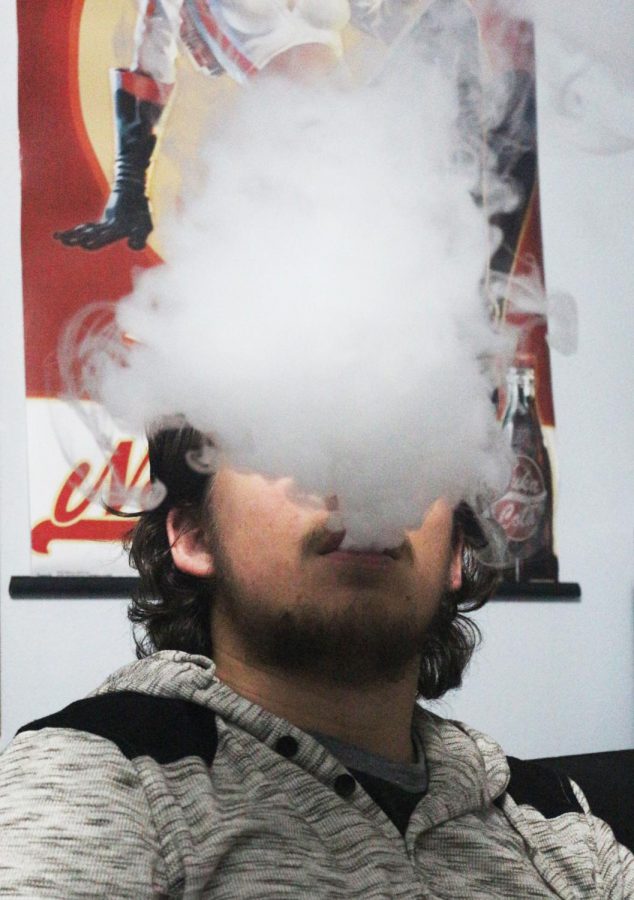Inside the dangers of nicotine
February 6, 2020
A recent law raising the minimum age to purchase tobacco from 18 to 21 has brought about much discussion regarding the use of nicotine. According to the World Health Organization, more than 1.1 billion people across the globe smoke cigarettes, even though smoking is the leading preventable cause of death. This begs the question: why is it so hard to quit smoking?
The addictive nature of nicotine is the first and most obvious explanation as to why quitting is so difficult. When inhaled, nicotine enters the bloodstream directly through the lungs and makes its way to the brain. This can happen in as little as seven seconds, as opposed to absorption through the skin or the mouth, which takes longer and is less concentrated.
There nicotinic receptors are filled with the drug and release dopamine, which creates the “buzz” associated with smoking. The longer a person smokes, the more receptors are created and the more they will crave nicotine. If the smoker leaves these receptors empty for too long, they will become uncomfortable and the craving will increase.
This “brain training,” as named by the National Institute on Drug Abuse for Teens, is what makes nicotine nearly as addictive as drugs like heroin and cocaine.
“They say that smoking is the gateway to bigger drugs, unfortunately,” said Rita Parsley, a registered nurse at the South Dakota State University Student Health Clinic and one of two certified tobacco treatment specialists employed there.
Additionally, according to the Mayo Clinic Nicotine Dependence Center, the people or places a person interacts with influence their ability to quit. Smoking only in certain scenarios creates strong associations, which can result in heightened cravings while in said situations. Social smoking also creates a connection between certain people and smoking, making quitting especially hard if the smoker spends considerable time with those people.
According to the Mayo Clinic stress worsens cravings. When smokers use nicotine as a coping mechanism, the urge to smoke can intensify under daily stressors. Smokers can also have a harder time concentrating without nicotine, once again making quitting difficult.
Related stories:

























